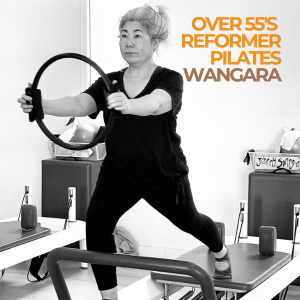Australia is a nation with a growing ageing population. With each passing year, there’s an incremental and steady increase of Australians seeking aged care services to address the health needs of their senior loved ones.
Every senior has different physical and health needs. Moreover, families also have varying budgets and levels of support they’re willing or able to provide for their senior loved ones.
All these factors combined influence the type of aged care facilities families seek out for their seniors.
In Australia, there are three primary aged care types for the aged population: residential, short-term, and home care. These types can be further divided based on the elderly individual’s needs. Families who live busy lives or who have moved out from their senior’s place typically opt for residential or short-term care for their elderly residents.
Each aged care type provides different levels of support from one another. To help you clear the difference among these options, read on to know the different levels of aged care your senior can receive with aged care services.
Let’s shed some light on this matter in more detail.
1. Home Aged Care
Also known as in-home care, this aged care type supports seniors who prefer having access to aged care services in their own residence.
At this stage, seniors still have the physical and mental faculties to go about their day without much trouble. They may also have family who can take care of quick daily chores.
However, they may have some occasional bouts of physical or mental troubles preventing them from being fully independent. For adult children who feel strained with other aspects of their lives, home care can help free up their time at a low cost without facing separation from their parents.
In Australia, there are government-subsidised programs that help elderly individuals live independently at home with occasional clinical assistance. Comprehending the various levels of in-home aged care can help families make informed decisions about their loved ones’ needs.
The levels of facilities and support that elderly individuals can gain from home aged care services include:
- Housekeeping: Cleaning, laundry, grocery and food delivery, and tending the garden are some activities a trained home care assistant can offer to their patient.
- Health care: Home care nurses are licensed to deliver nursing and therapy services to the elderly. They can also help in managing medication and treating wounds and health problems.
- Personal assistance: Nurses can also help the elderly perform daily activities, like maintaining their hygiene and cooking their food.
- Social support: In-home care providers also offer companionship to the elderly. With a staggering amount of elderly individuals in Australia admitting to being lonely, this support can be a great boost to their mental wellness.
In-home carers are adaptable and can adjust to the needs of their patients. The levels above can be trimmed down to be tailor fit to the patient’s needs, but generally speaking, those are some of the perks of having home care services—on top of the benefit of staying at home.
2. Residential Aged Care Housing
Another type of aged care type is residential aged care.
With the approval of the family, senior members can be relocated to dedicated residential homes built to support their physical, clinical, and mental needs.
These places offer a comfortable and pleasant environment for elderly individuals to stay in, both inside their rooms and out. The housing options are vast and varied, consisting of compact suites with private bathrooms to large suites with kitchenettes and premium living arrangements.
These places also have staff members with expertise in various disciplines. From nurses to resident doctors, your loved one will be in safe hands.
Furthermore, these places also have access to nearby facilities, particularly clinics. This proximity can give reassurance to the entire family in case your elderly member encounters an emergency situation.
Furthermore, your elderly parent doesn’t have to go far to the grocery station or a salon; in most luxury aged care Melbourne facilities, there’s an abundance of amenities just outside their doorstep.
Besides that, these residential facilities also offer a wide array of amenities to help support the elderly individual’s personal and social needs.
Your elderly loved one doesn’t have to live a life in a room in total isolation. In residential aged care, they can access a wide range of social activities, like lobbies, recreation rooms, and sports courtyards. Participating in social and elderly-friendly sports activities can curb their loneliness and support their physical health.
If you want your elderly to live in a proper residential aged care centre, then search around. There are many affordable aged care housing options available in Australia, with costs that can be significantly reduced through government grants.
3. Day Care Programs
A daycare program offers a middle ground between home care and residential aged care for your senior relative. This option grants them an opportunity to access specialised care and social interaction as well as the assurance of returning home in the evening.
These programs help provide seniors an avenue to not just get care, but to also socialise and participate in activities geared towards promoting senior wellness. For instance, they could participate in exercises, social games, and other activities to keep them active and engaged.
Besides that, daycare programs for seniors also grant them near-immediate access to medical care. This is because these programs have a round-the-clock physician ready to help assist elderly people with health needs. The furniture and environment of the facility are also safe for seniors, granting everyone peace of mind in assuring their safety.
What makes this different from other programs is that the family gets to reunite once nighttime rolls around.
For families who live near the daycare centre and who have a tight-knit relationship with their parents, this can be a great way to reunite with your loved one while still getting the assurance that specialists are taking care of your elderly loved one when you’re busy or at work.
Types of Clinical Care in Aged Care Facilities
Elderly individuals, with their advanced age, are prone to developing conditions that can affect their physical, neurological, and physiological state. This includes health conditions such as Parkinson’s disease, diabetes, arthritis, and so on.
Naturally, there are variances in these conditions across individuals. This requires nurses and care specialists to provide support to them on a case-by-case basis, keeping in mind the specifics of their condition and overall health status.
These are some of the common specialty care that elderly individuals can access, depending on their needs. These forms of care are often conducted in aged care facilities with specialised medical equipment and facilities, but in some cases, in-home care can also be given.
1. Memory Care
Patients with memory problems like dementia and Alzheimer’s disease still deserve a happy life. That said, their condition can cause them to inadvertently endanger themselves—and potentially, others too.
Having a dedicated carer helps keep them in safe hands with quality care and constant surveillance. They’re also equipped to conduct therapeutic sessions to slow the progression of these neurological issues, hosting activities such as exercises and reminiscence therapy.
Furthermore, these specialists also can prepare meals that are suitable for the elderly’s health needs. For busy adults, having a specialised carer who can provide this level of care can take a lot off their plate. This enables the entire family to live an unshackled life with the best support they can get.
2. Low-Level Care
In some cases, elderly individuals can perform chores and live on their own. However, they may still need some assistance for physically demanding tasks, cooking, or medication management.
In such cases, low-level care may be considered, which is recognised in both in-home and aged resident facilities.
This type of care helps give the elderly individual some independence while simultaneously providing comfort and safety during the times they need them. The specific duties of the carer should be communicated early on to prevent errors and mishaps in responsibilities.
3. Palliative Care
Some aged individuals may be approaching the end of their life, with late-stage illnesses and disabilities that prevent them from doing daily activities by themselves. These disabilities can range from physical limitations to mental incapacities.
In such cases, seeking out palliative care should be high on the family’s priority list.
Families can request aged care facilities to provide a dedicated nurse to take care of the senior’s needs, particularly, personal hygiene, room chores, and medication management. These nurses also provide emotional support and comfort to the elderly.
Besides the nurse, palliative care often involves multiple people, like doctors, religious authorities, and social workers. This comprehensive treatment helps provide comfort and ease the pain of the elderly in what could be the final stage of their life.














